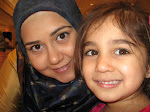I believe in Mercy – the kind of Mercy that enables us to give to others when we ourselves are in need of help.
Earlier this summer I found myself at a parking meter in the middle of Chinatown. I fumbled through my black hole of a bag, digging for just one elusive quarter. There was no need to panic, I told myself as I searched. A couple minutes passed and I noticed a homeless man walking towards me from across the street. He looked worn, tired, but young, probably in his late twenties or early thirties. His once white shirt resembled slushy traffic snow. There was dirt on his face, his hands, his hair. “Can I talk to you about something sister?” Could I just pretend like I didn’t see or hear him? Honestly, all I remember was something about the homeless shelter he frequented being shut down due to lack of funding. It was going to be replaced with newly constructed condominiums. “I’m sorry I don’t have any cash on me”. Well at least I wasn’t lying. “That’s ok Ma’am. Could you buy a brother something to eat?” Yes, yes of course I thought, as soon as I found this dumb quarter. “Umm. Yea I don’t have any cash right now, sorry.” As he reached for his pocket, I thought, Oh my God, he’s going to pull out a knife or a gun. I was convinced that this man was going to mug me, steal my purse and take my car.
“Here, you can have my quarters.”
I heard the words echo over and over again in my head as though he had spoken them in an open canyon. “Oh no that’s ok. Thanks,” I said with an awkward smile. My face turned crimson, and a sense of guilt spread from the core of my body to the tips of my fingers. I frantically began emptying the contents of my purse on the sidewalk. And then the words came out again:
“Here, Sister. You can have my quarters.”
I realized that perhaps he was a better human than I. Perhaps, he truly knew what it meant to come to someone's aid. I murmured a prayer; please let me see a bank, please let me see a bank. And then, I finally saw it. On the corner stood my redemption, in the form of a Chase bank.
“Would you wait here for me?” I said. “I'll be right back.”
As I walked back to my car, I saw him waiting, sitting on the sidewalk. “I hope your shelter stays open,” I said as I handed him the envelope. It wasn't much, but it was all I could afford at the time. In return he handed me a postcard of Chicago. A beautiful picture of the Chicago skyline on a gorgeous summer day.
This is our city I thought, and there has to be a place for him to live in it.
